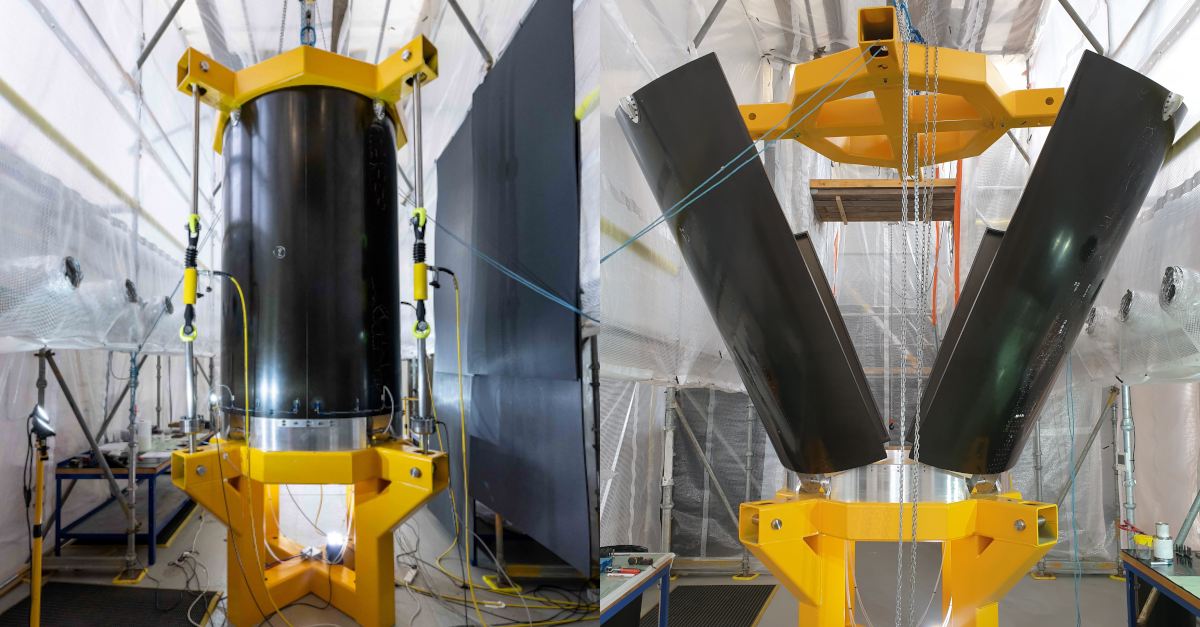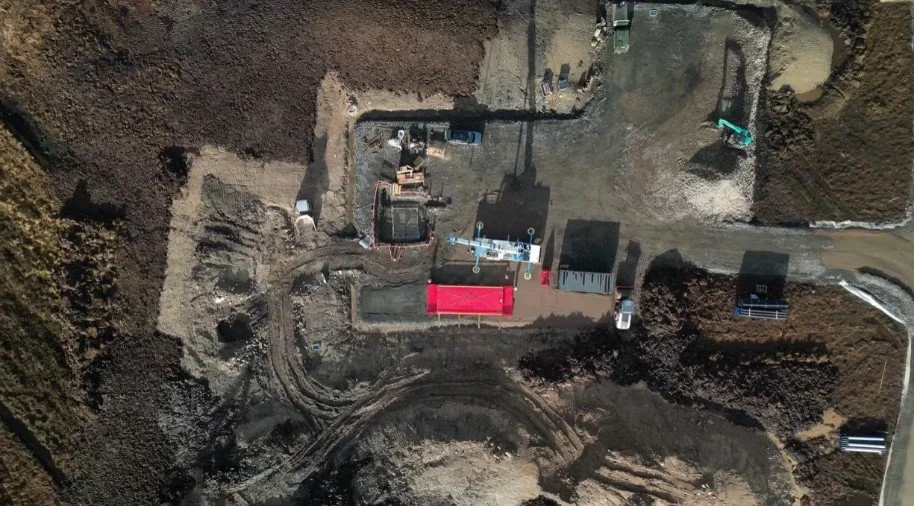Orbex Makes Vital Steps Towards Launching Satellites into Orbit
‘Petal fold’ reusable rocket technology successfully patented internationally
Orbex patented ‘petal fold’ technology
Orbex, the only UK owned orbital launch services and rocket manufacturing company, has successfully patented its REFLIGHT reusable rocket technology following patent approval in several European markets as well as the United States. This protection was based on the patent grant by the European Patent Office.
The technology is uniquely suited to micro-launcher rockets like Orbex’s Prime rocket since it enables recovery of the launch vehicle by repurposing existing structural features, while adding very little additional weight to the vehicle. It thereby enables reusability with very limited overall performance penalty and no additional rocket propulsion emissions in the upper atmosphere during re-entry. This should be compared to other reusable launch systems using powered descent (rocket engine firings) to slow down the vehicle during re-entry and landing.
Orbex’s Prime rocket will consist of two stages, and the REFLIGHT system repurposes the interstage structure located between the stages. After Stage 1 detaches from Stage 2, the interstage on top of Stage 1 reconfigures into four ‘petals’ which fold out and create drag forces that passively reorients and slows the spent rocket stage’s descent to Earth.
In combination with a lightweight parachute the drag created by the petals will enable Stage 1’s to perform a low velocity landing at sea. Orbex will then recover the floating Stage 1 and return it to its factory in Forres for refurbishment and/or recycling. During descent and recovery, there will be no debris left in orbit, on land or in sea, creating a ‘circular rocket economy’.
Jonas Bjarnø, CTO at Orbex, said: “At each step in the construction of Prime, we are looking at how to improve the launch system efficiency and sustainability. Our REFLIGHT technology is a critical innovation in overall efficiency of the system, and the slower return to Earth reduces risk of significant aerothermal damage, enabling refurbishment and re-use of parts. This is really critical to our vision for a more sustainable, circular rocket economy.”
Orbex secures European Commission and ESA backing through Flight Ticket Initiative
Orbex team attending the European Space Conference, where Flight Ticket Initiative placement was announced
Orbex is the only UK supplier, and only launch services provider with its own spaceport, to be selected for the European Commission and European Space Agency (ESA) Flight Ticket Initiative.
The Flight Ticket Initiative will supply payload for Orbex’s Prime rocket when undergoing test phases, demonstrating the UK start-up as a trusted supplier in the orbital services sector. The support will help Orbex achieve its goal of making the UK a central hub for European space flight.
Phil Chambers, CEO at Orbex, commented: "Securing a spot on the ESA Flight Ticket Initiative is a significant milestone for Orbex as we continue our journey to achieving sustainable space launch solutions. We are proud to be the only UK-based company to be selected, enabling us to lead the way in carbon-neutral spaceflight operations and propel the UK to the forefront of the global space industry."
Weather balloons begin to collect atmospheric data ahead of orbital launches
Orbex team out testing Weather Ballons
Orbex has undertaken a number of test launches of weather balloons equipped with radiosondes from Sutherland Spaceport to collect atmospheric data – including pressure, temperature, humidity and wind speed – in preparations for its orbital launch operations.
Initial tests occurred on multiple dates during February and March. In due course a balloon will be launched daily for ongoing data collection. The balloons are trackable by the Orbex team.
Spaceport development progresses as bridge foundation concrete is brought on-site
Aerial image of Sutherland Spaceport as construction continues
The construction of Sutherland Spaceport continues to move forward with two new watercourse crossing bridges transported on-site in February, the bridges will form part of the floating road connecting the launch site to the Launch Service Integration Facility (LSIF) and the Launch Pad.
The special bridges will help respect and preserve the natural conditions and ecology of the watercourse, such as the bed and banks, water levels, and wildlife habitats. The bridges also support ecosystem health through ecological design features that will prevent erosion, improve water quality, and facilitate wildlife movement.



